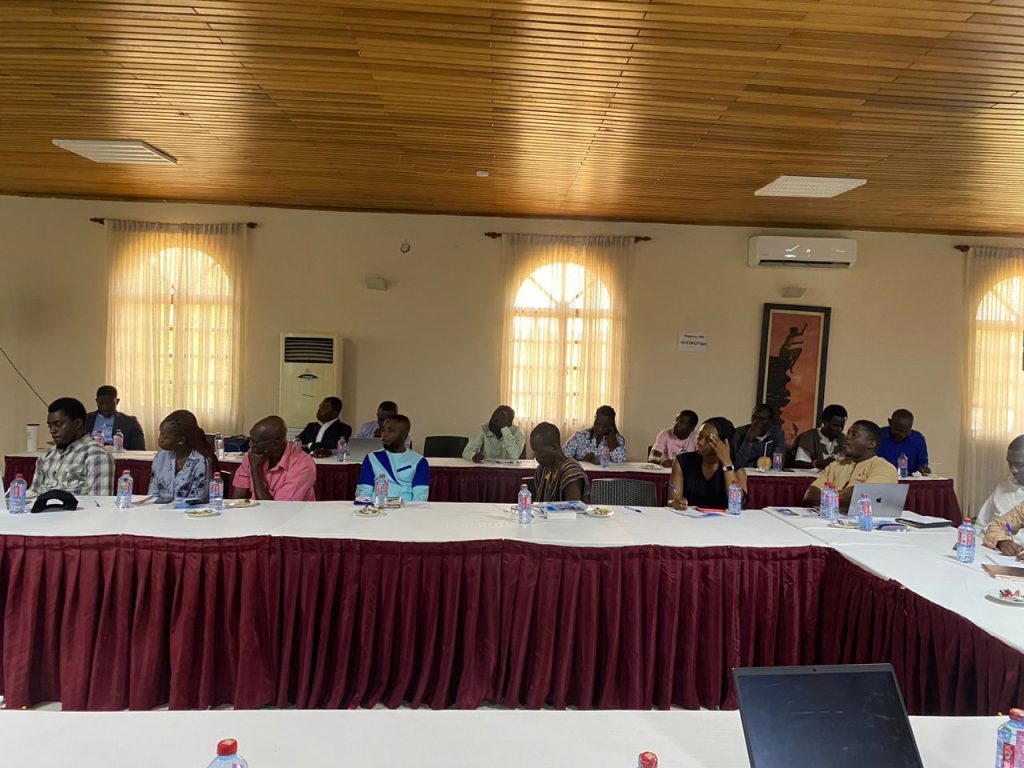By Stanley Senya
Accra, Oct. 20, GNA – Stakeholders in the Water, Sanitation, and Health (WASH) sector have called for a harmonised or centralised data at the national level to help make the needed inputs into the policy formulation on WASH related issues.
According to them, data variations obtained from government agencies such as the municipal and district assemblies by Non-Governmental Organisations (NGOs) in the WASH sector, occasionally affect the input made, hence, the need for a harmonised or centralised collection of data.
“In most cases the data that we receive from these districts and other entities are coined in a way either to lure you into giving them more because you are an NGO and they are not accountable to you”, one of the stakeholders said.
“It’s better for us to have a harmonised database because if we have a centralised data where information can be actually taken, the NGO will not have to go and speak to one individual in his office,” he added.
The stakeholders raised the concern at a workshop organised by WaterAid Ghana in collaboration with the Resource Centre Network (RCN) in Accra on Thursday.
Apart from having a harmonised or a centralised database, the stakeholders have also advocated data management capacity-building programme for government agencies in the WASH sector.
Presenting the findings on the overall budget and expenditure for the Wassa East and Asutifi North districts, Mr George Yorke, Head of Policy Advocacy and Campaigns at WaterAid Ghana, noted that there were gaps in total budget and budget allocation received for the Wassa East and Asutifi North districts.
According to the study, the Asutifi North recorded fewer financial gaps within the period of 2018 to 2022, as compared to Wassa East, which recorded negative figures in each year between the period of 2017 to 2022.
Mr Yorke indicated that it was because the district was well endowed with a lot of mining companies who paid royalties to the district.
Mr Yorke further noted that the financial gaps recorded, which were not peculiar to only the two districts in terms of total budget and budget allocation received, had a negative impact on WASH.
In terms of WASH operations and maintenance, the budget for Asutifi North between the period of 2018 to 2022 was GH₵382,290, with the actual expenditure totaling GH₵231,310 while Wassa East had a budget of gh₵3,029,953 with an actual expenditure of GH₵861,881.
Mrs Seyram Ama Asimah, the Programme Officer of WaterAid Ghana, in her presentation on the WASH budget and expenditure tracking, indicated that health department of the Wassa East and Asutifi North district assembly requested a budget of GH₵4,290,435 and GH₵4,213,591 within the period of 2017 to 2022 and 2017-2022 respectively from the government.
With the health departments of both district assembly receiving a budget allocation of GH₵2,941,348 and GH₵3,159,732, the Wassa East and Asutifi North district assembly utilised GH₵2,817,455 and GH₵3,135,427 of the budget respectively.
Additionally, the study also indicated an expenditure of GH₵592,821 and GH₵709,342 on WASH in HFCs by the Wassa East and Asutifi North districts respectively.
Providing a breakdown of the expenditure of WASH in HFCs, Mrs Asimah noted that while the Wassa East district spent GH₵27,500, GH₵396,259, GH₵52,135, GH₵42,167, and GH₵74,759 on water, sanitation, hygiene, healthcare waste disposal and environmental cleaning, the Asutifi North district had an expenditure of GH₵206,223, GH₵321,180, GH₵181,938 on water, sanitation and hygiene.
Meanwhile, there was no data recorded for the expenditure on healthcare waste disposal and environmental cleaning for the Asutifi North district.
Mrs Asimah, however bemoaned the lack of adequate WASH budget and emphasised the need to have a maximum budget and expenditure allocated to WASH to help address WASH issues on the grounds.

The objective of the workshop which was on the theme: “Strengthening Systems for WASH in Healthcare Facilities (HFCs) in Ghana” was to share findings of studies undertaken by WaterAid in the Wassa East and Asutifi North districts in relation to the Sustainable WASH in HFCs advocacy project with stakeholders.
Funded by the Conrad N. Hilton Foundation, the WASH in HFCs advocacy project being implemented by WaterAid Ghana and is expected to end this month aims to develop the evidence base around safe water and WASH in HCFs to inform policy and practice.
Additionally, the project aimed to promote and enhance civil and social accountability for WASH in HFCs.
GNA